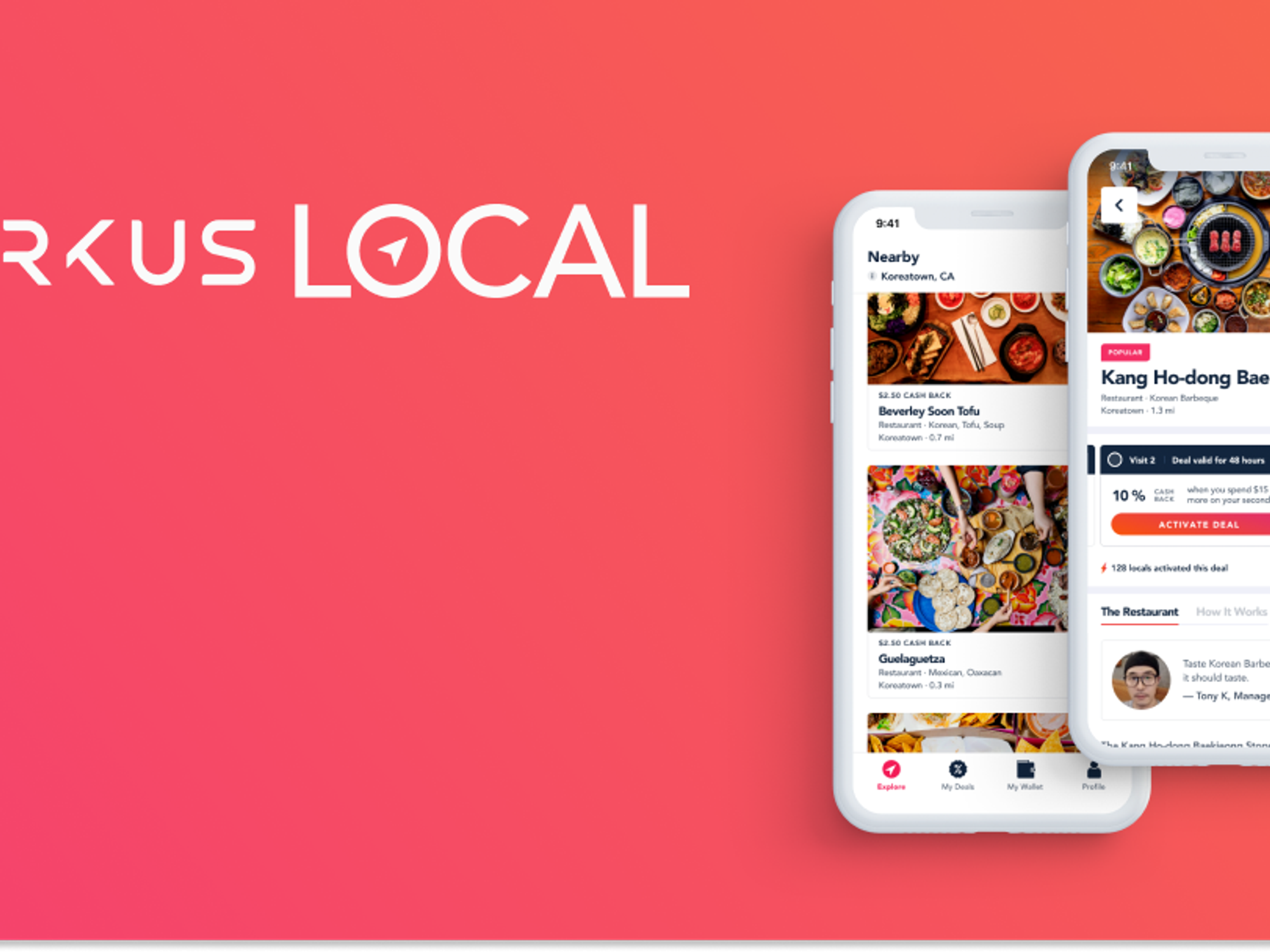Surkus Local is Launching to Help LA Businesses Build Loyalty
Sam primarily covers entertainment and media for dot.LA. Previously he was Marjorie Deane Fellow at The Economist, where he wrote for the business and finance sections of the print edition. He has also worked at the XPRIZE Foundation, U.S. Government Accountability Office, KCRW, and MLB Advanced Media (now Disney Streaming Services). He holds an MBA from UCLA Anderson, an MPP from UCLA Luskin and a BA in History from University of Michigan. Email him at samblake@dot.LA and find him on Twitter @hisamblake

The magic number is 2.2.
That's the threshold for how many times a customer must patronize a business before beginning to feel a sense of loyalty. So says Surkus founder and chief executive Stephen George, whose L.A.-based company launched in 2014 to help companies expand their marketing and build loyal customers. Surkus is now rolling out a new product geared toward "hyperlocal" businesses with fewer than 20 locations.
Surkus Local aims to drive users to small businesses in their area. "I want to see 10 places within 10 minutes of walking," says George. The product will strive to incentivize traffic to local businesses with a tiered rewards program. The basic idea is that users on the platform will receive a small discount on their first visit to a registered business, then larger discounts for the second and third visits to get them over that 2.2 hump. In addition to cash discounts, businesses can customize the rewards.
In exchange for driving a customer to a business, Surkus Local will take a 20% revenue share of the first three visits, then 10% for every future visit. George says the pricing model aligns with the transition from building loyalty to retaining customers. Turning new customers into return customers is what Surkus Local sees as its job; building lifetime loyalty is something that the businesses can do better. Pricing is designed to be sustainable for the businesses, based on their typical marketing costs and profit margins.

Stephen George is CEO of Surkus, which is launching its new Surkus Local product this month
Surkus Local will launch with select food and beverage retailers in Koreatown, Downtown L.A. and Hollywood. It will be available later this month on iOS.
George describes the new product as a natural evolution of Surkus' growth and his own career. The chief executive was formerly employee #5 at Groupon.
"We launched Groupon to give businesses a performance-based platform to acquire customers. Surkus is an evolution of that: customer acquisition, but also customer loyalty on top of that," he says.
Surkus, which has raised over $20 million, began with a focus on helping companies big and small market themselves with in-person events and customer experiences. The idea was to streamline that process, which could be expensive and require several vendors, into an affordable one-stop shop. Surkus' clients, whether big companies like Samsung or local shops, would ask attendees to complete certain brand-building activities, like posting on social media or leaving product reviews, in exchange for the experiences, which were often free.
That model had limitations. Companies would host such events only every so often, so about a year and a half in, Surkus grew its offering to help companies market themselves digitally. Businesses would send products to Surkus users in exchange for their reviews, feedback, and user-generated content.
But just as the events-focused model had its limits, so did the digital angle. "Not every business has a product they want to ship to you," George says. He highlights the approximately 15 million businesses in the U.S. making under $500,000 in annual revenues, often with little digital presence.
So, in late 2019, the company began building out Surkus Local. George sees a through-line from the in-person experiences of the business' first iteration to the hyperlocal connectivity that Surkus Local is trying to generate.
"There's a whole different connection you can build in person. We try to do that by telling the business' story, showing who runs it, what they're proud of," George says. "We try to start that connection." He describes wanting to enable the experience of a local coming into her favorite hidden gem, where the owner knows her name and offers her a free coffee.
George thinks Surkus Local will be helpful to businesses even if they must limit their foot traffic due to the coronavirus pandemic.
"If they have a digital presence side, great, we can drive consumers there," he says. "We want to focus on the core of what makes this small business unique – that storytelling, that personal engagement. If it has to adapt digitally in the meantime, we can allow for that."
With an office in the UAE in addition to its L.A. headquarters, the company hopes to expand internationally. But first it plans to expand by sector. In addition to food and beverage businesses, it will also eventually target fashion and beauty and health and wellness companies.
For now, with a growing waiting list of users and L.A. businesses onboarding, Surkus Local will focus on helping Angeleno retailers get past that magic number.
Sam primarily covers entertainment and media for dot.LA. Previously he was Marjorie Deane Fellow at The Economist, where he wrote for the business and finance sections of the print edition. He has also worked at the XPRIZE Foundation, U.S. Government Accountability Office, KCRW, and MLB Advanced Media (now Disney Streaming Services). He holds an MBA from UCLA Anderson, an MPP from UCLA Luskin and a BA in History from University of Michigan. Email him at samblake@dot.LA and find him on Twitter @hisamblake




 Image Source: Skyryse
Image Source: Skyryse
 Image Source: Northwood Space
Image Source: Northwood Space